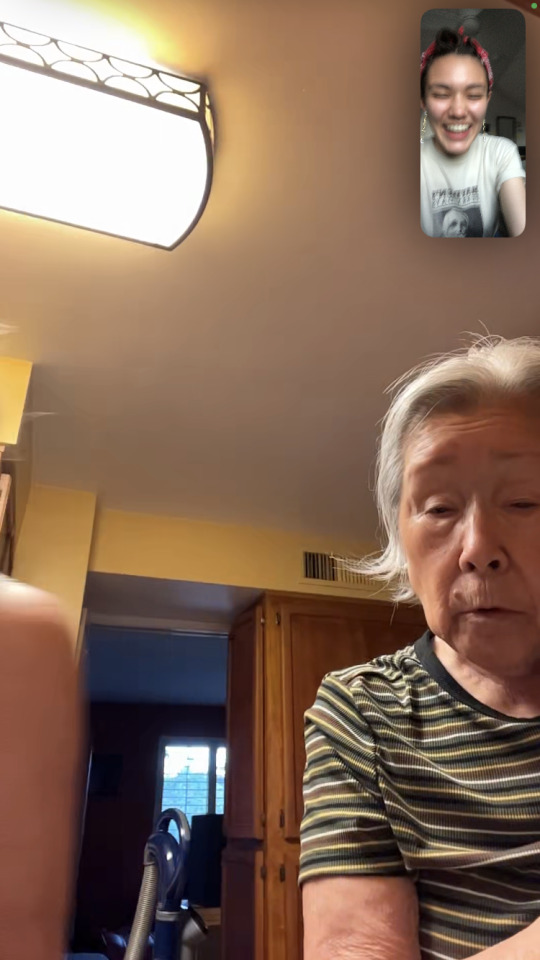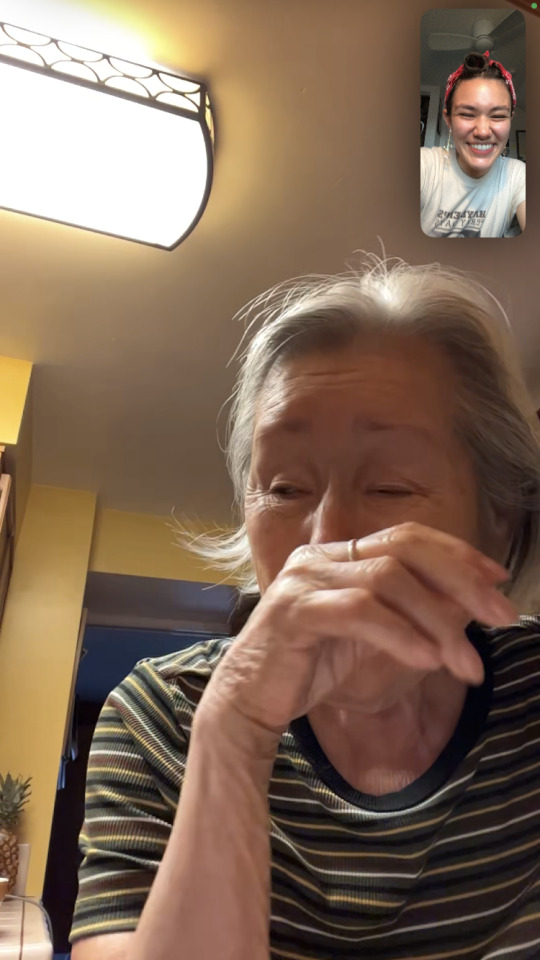#Mississippi Goddamn
Text
Born on this Day: Nina Simone
"Mississippi Goddam" was written and performed by Nina Simone in 1964. It was a response to the murder of Medgar Evers in Mississippi and the 16th Street Baptist Church bombing in Birmingham, Alabama.
The story goes that Nina Simone was scheduled to perform at the Village Gate in Greenwich Village just days after the bombing. Tensions were high, and the audience was expecting a typical evening of jazz standards. However, Nina Simone took to the stage and performed "Mississippi Goddam" for the first time. The song was a powerful and unapologetic statement against racial injustice, and it stunned the audience into silence. Some reports even suggest that a few patrons left the venue in protest.
Simone's boldness in addressing social and political issues through her music, especially during a time of intense racial segregation and civil rights struggles, solidified her reputation as both a talented musician and a fearless activist. "Mississippi Goddam" remains one of her most enduring and powerful songs, serving as a testament to her commitment to using her art to advocate for change.
🎤:
https://bi.org/en/articles/famous-bis-nina-simone
#lgbt#queer#bisexuality#bi#lgbtq#lgbtqia#bi pride#bi visibility#bivisibility#representationmatters#nina simone#ninasimone#mississippi goddamn#civil rights#civil rights movement#bicon#icon#iconic#black history#black history month#black history matters
106 notes
·
View notes
Text
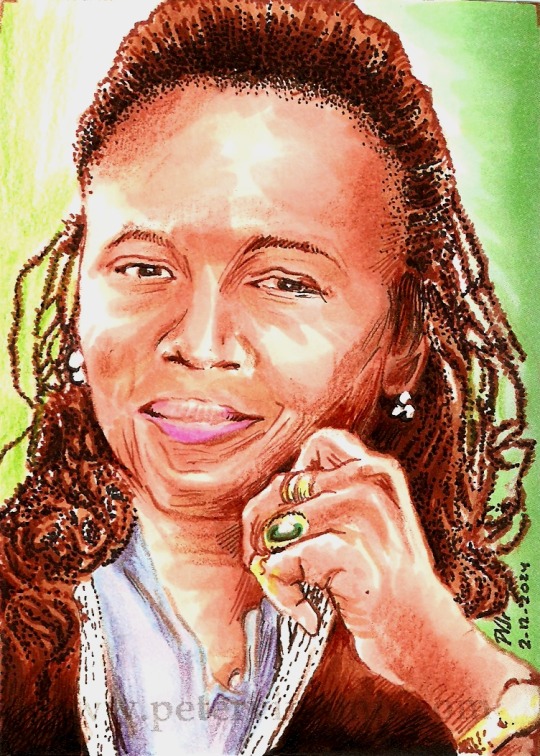
Everybody say hello to Gwendolyn Zoharah Simmons: activist, teacher, and researcher. Born in 1944 Memphis, Gwendolyn was the first generation in her family to attend college (Spelman, 1962). She credits her grandmother, Rhonda Bell Robinson, with having instilled in her the family's history and its reckoning with slavery, her own hardships growing up as a sharecropper, and how Mississippi was objectively the "worst of the worst" for Black people. Gwendolyn solemnly promised her grandmother that she would never go to Mississippi. (And don't even get her started on the epic confrontations with teachers and school officials about the "inappropriateness of her hair." Boy, it's sure nice that that sort of racial dress-code pettiness isn't a thing anymore, huh?)
In the 1960's, inspired by several Spelman professors (to include Howard Zinn), Gwendolyn actively and enthusiastically became involved in the SNCC against her family's wishes. She participated in sit-ins and endured several arrests, ultimately jeopardizing her Spelman scholarship. She helped prepare curricula for Freedom Schools and coordinated mock voter registrations, working under Bob Moses (see Lesson 112 in this series) and alongside James Forman and her fellow Spelman alum Ruby Doris Smith-Robinson (see Lesson 66). Eventually she came into the orbit of the Mississippi Freedom Democratic Party, and ultimately found herself taking over as director of the Mississippi Summer Project in 1964 when its previous director, Lester McKinney, had been picked up by Laurel police. She herself was arrested in Jackson following a march; being held, beaten and tortured for 15 days in a makeshift prison constructed on the county fairgrounds.
Gwendolyn later moved briefly to New York, and then to Atlanta where she worked on Julian Bond's state campaign (see Lesson 72). She continued to work with the local chapter of the SNCC, authoring a controversial position paper on Black Power that argued against expelling its white members. Around this time Gwendolyn also (unsurprisingly) found herself on the FBI's notorious Counterintelligence Program (COINTELPRO) target list.
Inspired by the speeches of Malcolm X, Gwendolyn joined Nation Of Islam in the late 1960's and changed her name to Zoharah (also taking her husband Michael Simmons' last name), and moved to Philadelphia. However her strong feminist principles contravened a number of NOI teachings, putting her at odds with the organization's stance on women as submissive helpmeets. Over the next 20 years she worked for the American Friends Service Committee, travelling to Jordan, Egypt, Syria, and (significantly) Palestine.
Gwendolyn retired from the University of Florida in 2019; conducting and leading research that explores Islamic feminism and the cultural impact of Sharia law on Muslim women. Today Simmons is senior lecturer emerita, continuing to travel and lecture on gender equality, and on many other issues affecting Black Americans, feminism, and social inequities. Her and Michael Simmons' daughter Aishah Shahidah Simmons, is herself an accomplished documentary filmmaker.
(Teachers: Need some resources to engage your students this Black History Month? I'll send you a pile of these trading cards, no cost, no obligation. Just give me a mailing address and let me know how many students in your class. No strings attached, no censorship, no secret-relaying-of-names to Abbott or DeSantis or HuckaSanders.)
#black lives matter#gwendolyn zoharah simmons#black history month#mississippi goddamn#spelman#sncc#nation of islam#feminism#teachtruth
9 notes
·
View notes
Audio
#Nina Simone#Bertolt Brecht#Kurt Weill#The Rise and Fall of the City of Mahagonny#Mississippi Goddamn#Moon of Alabama#Alabama Song#music#fave
21 notes
·
View notes
Video
youtube
Nina Simone - Mississippi Goddam (Live in Netherlands)
6 notes
·
View notes
Text
Watch "Mississippi Discriminates against Black Residents, Appoints Judges Over Elected Judges"
youtube
if you don't watch anything else today you need to watch this video.
the department of Justice is going to have to step in and correct this overstep because clearly Mississippi has lost its goddamn mind
Tate Reeves the governor has been on our discussion this quite a bit and we are tired of talking about him. maybe this week we'll do a little work outside since it's going to be bright and sunny as well as smokey and dangerous
those are the conditions that Baron Elegba loves to work in.
we're going to bake that special cake this weekend ask if Saint Expedite might be able to jump down into this mess and straighten it out once and for all
we'll try and post some pictures once we get the Veve set up, and we're ready to light it on fire
that's right this one will be set on fire and hopefully we'll be able to take a short video clip and show you how this particular work goes
Tate Reeves is the proverbial trash in the bottom of all of our bins and this week we're going to have to take it out

4 notes
·
View notes
Text
Nina Simone cannot be defined concisely within the rigid confines of language. She was an exemplary artist with whom every facet of her essence was abundantly imbued with integrity, grandeur, honor, and greatness — a singer-songwriter, an activist, an engrossing songstress, and at the root of her quintessence, a virtuosic classical concert pianist of illustrious preeminence. She was at once of the Earth and the opaque drape by which our realms are split. The divine nobility emanating from her inimitable timbre was concurrently revelatory and mortal. Her unmistakable voice, at once gracious and sagacious, unearths the lived experiences with which our minds have inhumed, not for laborious dwelling or wretched self-criticism, but to aid in a life where their existence is absent, and their presence becomes damned to the abyss wherein desolation concedes to bliss. It fleetingly rectifies our impenetrable miseries, vanquishes our anguish, and intermittently revokes our seemingly unescapable woes through the nurturing embrace of her alleviating vehemence. The depths of her breath conveyed the startling realities of humanity, truthfully imparting that the air from which euphoria stems just as swiftly harbors the capacity for cruelty and inequality. As a pianist, she was a consummate tactician, equivalently fearless and peerless. The immense breadth of her dexterous caress was of a spirit bound with distinguished precision and virtuosity; each note, at once graceful and visceral, was imperative to wholeheartedly substantiate the unfettered fruit her creative energy bore. Her deftly affective perceptivity transcended the intrinsically sensory to engender virtuous self-observation — with the strength of her majestic sense of self as the almighty conductor.
3 notes
·
View notes
Text
youtube
My country is full of lies
We're all gonna die like flies
1 note
·
View note
Text
False alarm on Mississippi… Looks like the Republicans will sweep. Meanwhile, if you would like to see voter suppression in action, just look at any Twitter thread on how many polling places were moved last minute or ran out of ballots (and the color of the folks who mostly live in those areas).
#give me one good goddamn reason to ever vote again in Mississippi#because i’m tired#(this doesn’t apply to Florida and Texas)#election day#mississippi’s was a shit show#This is what gutting the voting rights act does
4 notes
·
View notes
Text
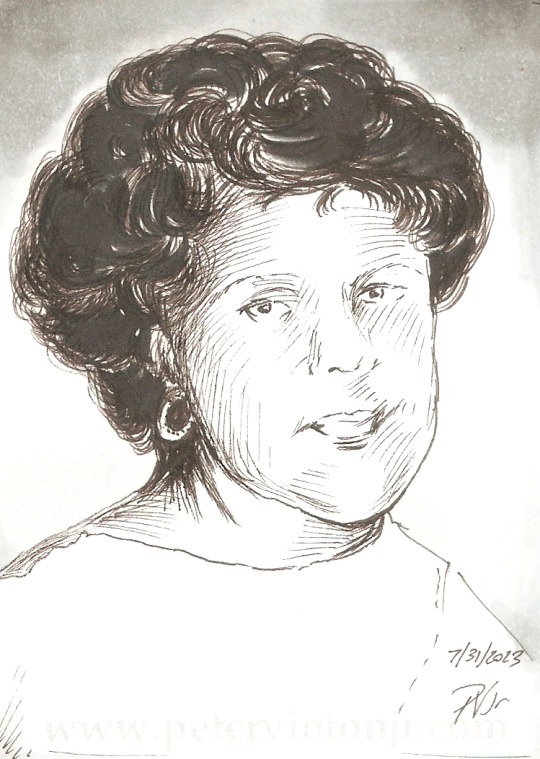
"June sprinkled with uncommon courage."
--Washington, D.C. delegate Eleanor Holmes Norton
Perhaps one of the SNCC's lesser-known (but certainly one of its bravest) heroes, civil rights activist June Elizabeth Johnson was born in 1947 Greenwood, Mississippi, at a time when that region was seeing an alarming rise in white supremacy. Inspired by her church --and over her parents' objections-- Johnson attended her first voter registration workshop at the age of fifteen. By 1962 she had made the acquaintance of Bob Moses (see Lesson #112 in this series), and eventually her commitment to cause of Black voter rights was so infectious that even her reluctant parents ultimately began opening their home to SNCC activists and workers.
On June 9, 1963, Johnson was returning from SCLC Citizenship School training in South Carolina and ran afoul of the driver of a Trailways bus driver over approved seating locations at a rest stop lunch counter. Predictably the driver made a phone call ahead, and when the bus reached Winona, June and her colleagues Annell Ponder (see Lesson #120) and Fannie Lou Hamer (see Lesson #51), among others, were arrested and severely beaten --in particular June was punched in the face and stomach by police, and hit in the back of the head with a studded leather strap until her dress was soaked with blood. Horrifyingly while these assaults were happening, at almost the very same time in nearby Jackson, Medgar Evers was murdered. The attackers were belatedly brought up on Federal charges but were acquitted. Such bleakness might have crushed lesser spirits but June's resolve was only strengthened. Johnson went on to organize the Greenwood Voters' League, and took a job as a paralegal, eventually leveraging that experience into actually suing Greenwood and Leflore Counties for racist hiring practices. She also devoted a great deal of time and commitment to Hamer's and Moses's Mississippi Freedom Democratic Party (MFDP).
Later in life Johnson became vice president of the Office Of Early Childhood Development in Jackson, Miss. and remained a fierce voice for equality, frequently travelling to Washington, D.C. to speak and advocate. Her story was given new attention in 1994 in the publication of John Dittmer's book Local People: the Struggle for Civil Rights in Mississippi. She eventually settled in the D.C. area worked for that city's child support enforcement office, also serving as a consultant for several television documentaries about the civil rights movement. Johnson died in 2007 at the relatively young age of 59.
21 notes
·
View notes
Text
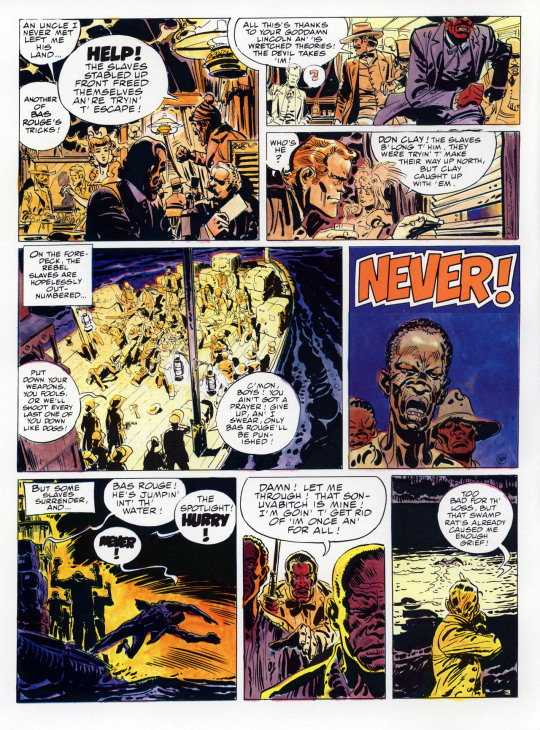
"Your Goddamn Lincoln"
Mississippi River (1991)
Moebius
Epic Comics / Marvel Comics
#Mississippi River#Moebius#Epic Comics#Marvel Comics#Great Comics#Great Comic Art#Your Goddamn Lincoln
2 notes
·
View notes
Text
BBC News: Aderrien Murry: Mississippi boy, 11, shot by officer after calling police
BBC News - Aderrien Murry: Mississippi boy, 11, shot by officer after calling police
Obviously it's way past time for me to take a break from the news - especially stories like this. I'm very glad that he survived - both for him and his family, and for the fact that had he died, shit might have started popping off like it did three years ago.
3 notes
·
View notes
Text
Nina Simone Sings the Blues
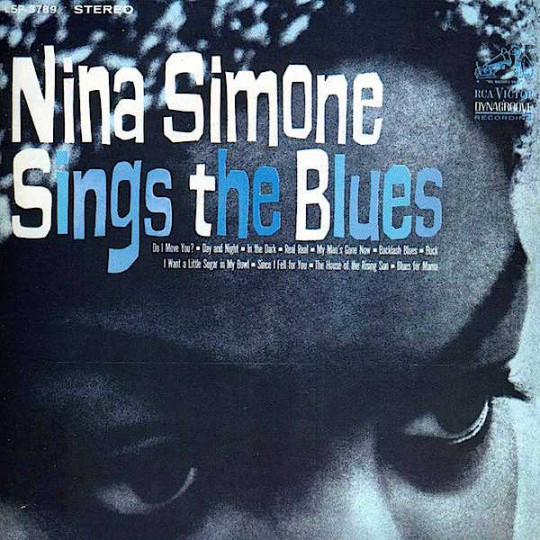
“Backlash Blues”
Nina Simone Sings the Blues
1967
Simone’s friend Langston Hughes mailed her the lyrics to this song in poem form, and she took immediately to his indictment of “Mr. Backlash,” a personification of white oppression of black America’s small gains (and the “black, yellow, beige and brown” among them, equally oppressed). Simone delivered these promises and threats with a slinky blues rasp, forecasting that the person to receive the backlash would be the oppressor himself. Its lyrics also dovetailed with the rise of the Black Panther Party, which had begun exercising their right to open-carry in their efforts to protect the black people of Oakland from police brutality. Simone sang easily, measuredly, with the confidence that one day a score would be settled: “Do you think that all colored folks are just second class fools?” –Julianne Escobedo Shepherd
Listen:“Backlash Blues”
“I Want a Little Sugar in My Bowl”
Nina Simone Sings the Blues
1967
In the 1960s, Simone left her first label, Colpix, ended up at Phillips, and then hopped over to RCA Victor. In 1967, she recorded her debut album for RCA: Nina Simone Sings the Blues, a hard-driving, tough-talking collection of originals and covers. On “I Want a Little Sugar in My Bowl,” she borrows the basic blues progressions from “Nobody Knows You When You’re Down and Out,” a 1920s cautionary standard originally popularized by Bessie Smith. But Simone comes up with an original lyric that bypasses social commentary and conjures up bawdy flirtatiousness and lust instead: “I want a little sugar in my bowl/I want a little sweetness down in my soul/I could stand some lovin’, oh so bad/I feel so funny, I feel so sad.” Impressive in her thematic range, Simone had no problem mixing double entendre lyrics about ribald sex and in-your-face politics on her albums: “I Want a Little Sugar in My Bowl” appears alongside her classic civil rights protest song “Backlash Blues.” Songs like this serve as a reminder that the revolutionary activist who can’t occasionally admit to being horny isn’t really the revolutionary activist we need. –Jason King
Listen:“I Want a Little Sugar in My Bowl”
#Nina Simone Sings the Blues#Blues#civil rights#Mississippi Goddamn#a Lil Sugar in My Bowl#Nina Simone#ausetkmt#2023#Black Music Month
1 note
·
View note
Text
The Guardian US: Mississippi Republicans pass bill to create separate, unelected court in majority-Black city
The Republican-dominated Mississippi house of representatives has passed a bill to create a separate, unelected court system in the city of Jackson that would fall outside the purview of the city’s voters, the majority of whom are Black.
The bill, which local leaders have likened to apartheid-era laws and described as unconstitutional, would also expand a separate capitol police force, overseen by state authorities. The force would expand into all of the city’s white-majority neighborhoods, according to Mississippi Today. Jackson’s population is over 80% Black.
Speaking after House Bill 1020 passed on Tuesday evening, Jackson’s mayor, Chokwe Lumumba, branded the proposed law “some of the most oppressive legislation in our city’s history”.
“It’s oppressive because it strips the right of Black folks to vote. It’s oppressive because it puts a military force over people that has no accountability to them. It’s oppressive because there will be judges who will determine sentences over people’s lives. It’s oppressive because it redirects their tax dollars to something they don’t endorse nor believe in,” Lumumba said.
The bill passed largely along party lines in a 76-38 vote and will now travel to the state senate, where Republicans also hold a significant majority. The passage was preceded by an intense, four-hour floor debate in which members of the state’s Black caucus made impassioned pleas to reject the legislation and compared the bill to the state’s Jim Crow-era constitution of 1890.
The legislation was proposed by house Republican Trey Lamar, who is white and represents a district in the state’s north-west, which is majority white.
Lamar, who does not live in Jackson, has cited county court backlogs and crime rates in the city as his motivation for the proposed law. During floor debate, Lamar was asked if any of his constituents had asked for the bill. He replied: “I don’t live in Jackson … but you know what I like to do … I like to come to Jackson because it’s my capital city.”
The bill, which is over 1,000 pages long, would expand Jackson’s existing capitol complex improvement district, which is patrolled by the state’s capitol police and currently covers parts of the city’s downtown that house state government buildings. The district’s expansion would cover areas in the city’s north, which, according to local press, include entertainment and shopping neighborhoods.
The new court district would feature two judges directly appointed by Mississippi’s supreme court chief justice, Michael K Randolph, who is white. There would be two prosecutors, appointed by the state attorney general, Lynn Fitch, a white Republican. And two public defenders appointed by the state defender’s office.
Proposed amendments offered on Tuesday included calls to make the judges residents of the Jackson area and to compel elections for the positions. Both amendments failed.
The proposed bill is the latest in a line of extreme legislation in the state, which last year introduced a sweeping anti-critical race theory law, which met vocal opposition from the state’s Black caucus.
Jackson has also suffered from a series of water outages due to ailing infrastructure, which has been chronically underfunded by the state for years. Black residents in the poorest parts of the city have been disproportionately affected.
In November last year, the city’s water system was taken under federal government oversight after the Environmental Protection Agency found the city in violation of the Safe Drinking Water Act.
#mississippi goddamn#MS#Jackson MS#would also expand a separate capitol police force#according to Mississippi Today. Jackson’s population is over 80% Black.#Jackson’s mayor#Chokwe Lumumba#apartheid system
7 notes
·
View notes

